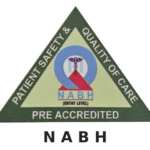Content
The field of health care concerned with substance use and other mental health disorders. Contact SAMHSA’s regional OTP Compliance Officers to determine if an OTP is qualified to provide treatment for substance use disorders. https://curiousmindmagazine.com/selecting-the-most-suitable-sober-house-for-addiction-recovery/ At ACS entry, frequency of use of heroin, cocaine, and/or amphetamines for the preceding 6 months was recorded; at follow-up visits, frequency of drug use was recorded for the time since the preceding visit.
What is long-term treatment mean?
There are numerous situations where long-term treatment, meaning care that lasts several months or longer, is helpful. Those who have used drugs for a long time can take some time to break free from them.
Seeking medical care as soon as you have signs of substance use disorder is essential. Treatment aims to help individuals develop a healthier relationship with drugs, helping them live productive lives in relationships with their family, work, and society. However, effective treatment for SUD should address all of a person’s mental and physical health needs. – Several drugs can cause damage to your intestines and/or stomach. Physical, cognitive, and affective symptoms that occur after chronic use of a drug is reduced abruptly or stopped among individuals who have developed tolerance to a drug. Businesses that help solve social problems, improve communities, people’s life chances, or environment.
It’s Never Too Late to Get Help for Addiction
An older group of drug users who are addicted primarily to opiates may increasingly attract attention from public health service providers in the Netherlands (27). Studies on the primary prevention of addiction and the prevention of relapse deserve high priority. Mortality rates over time since initiating regular use of illicit drugs were calculated by means of Kaplan-Meier product-limit survival estimates for left-truncated data. Survival times were left-truncated at the time of ACS enrollment, since participants entered the ACS after a time interval following their initiation of drug use.
What is the first ever drug?
The first modern, pharmaceutical medicine was invented in 1804 by Friedrich Sertürner, a German scientist. He extracted the main active chemical from opium in his laboratory and named it morphine, after the Greek god of sleep.
For instance, someone abusing drugs may not eat well and may suffer from weight loss, weight gain, malnutrition, or nutritional deficiencies. Sleep can also be an issue, and someone who is addicted to drugs may not get enough sleep for long periods of time, which can trigger more health problems. Alcohol can impact many of the digestive functions such as the stomach lining and intestines. Severe substance abuse can leave intestinal holes and long-term digestive issues.
National Institutes of Health
The code set allows more than 14,400 different codes, including those pertaining to alcohol and other drug-related illness, and permits the tracking of many new diagnoses. Short for “detoxification,” it is the medical process focused on treating the physical effects of withdrawal from substance use and comfortably achieving metabolic stabilization; a prelude to longer-term treatment and recovery. The occurrence of two disorders or illnesses in the same person, also referred to as co-occurring conditions or sometimes dual diagnosis.
- Any misuse of any type of drug puts a person at risk for having an overdose that may be fatal.
- – Kidney failure is life threatening, and many drugs can cause prolonged kidney damage.
- Your concern might be just what they need to start their recovery journey, and your support could make all the difference in their success.
- Addiction is defined as a chronic, relapsing brain disease that is characterized by compulsive drug seeking and use, despite negative consequences.
- Long-term recovery from a substance use disorder is considered by many to occur after 5 years, at which time the likelihood of meeting criteria for substance use disorder in the following year is no greater than that of the general population.
They can also involve significant others such as a marriage or domestic partner (e.g., behavioral couples therapy) or one or more family members (e.g., family therapy) in an attempt to help attain and sustain remission from a substance use disorder. Nar-Anon is a mutual help organization or peer support group for people who have been affected by a loved one’s drug use disorder. Groups are based on 12-step principles and practices and have attendees share stories and build supportive networks to help cope with the difficulties of having a loved one with a drug use disorder. The minor personal slights perceived to occur among people with, or in recovery from, a substance use disorder. Scales and tools look to screen for and diagnose substance use disorder, measure severity, and monitor disease progression or improvement at every point of care, akin to the management of other chronic diseases such as hypertension and diabetes.
Drug addiction (substance use disorder)
The survival analysis was performed with EGRET, version 2.0.1 for Windows (Cytel Software Corporation, Cambridge, Massachusetts). Sometimes, drug misuse can increase a user’s risk of developing a mental disorder. For example, there is evidence that smoking marijuana during adolescence can increase a person’s risk of psychosis during adulthood.3 These associations, however, may be most pronounced in those with a genetic predisposition for psychological issues.
- Long-term side effects of marijuana can increase your risk for heart attack and testicular cancer as well as cardiopulmonary issues, such as chronic bronchitis.
- SUD is a complex but treatable disease that affects a person’s cognitive function and behavior.
- For example, frequent cannabis use in adolescents can increase the risk of psychosis in adulthood in individuals who carry a particular gene variant.
Answering the question of “how long is long-term drug use” is not easy. There isn’t any conclusive data that would suggest when short-term issues stop and long-term issues begin. The disease of addiction is progressive, and long-term drug effects cause significant damage throughout the body.
If you aren’t sure, treat it like an overdose—you could save a life. Whether intentional or not, mixing drugs is never safe because the effects from combining drugs may be stronger and more unpredictable than one drug alone, and even deadly. Participating in self-help programs, like Narcotics Anonymous, can also play a significant role in SUD treatment. Research shows that mental illness may contribute to SUD, and SUD can contribute to the development of mental illness. Both involve the development of physical dependence and psychological dependence.


